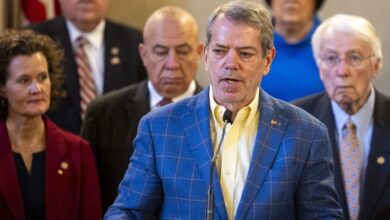The Complex Interplay of ESG Investing, Taxpayer Interests, and Government Policies

In the midst of the evolving landscape of environmental, social, and governance (ESG) investing, a delicate balancing act emerges as policymakers grapple with the implications for taxpayers and government financial obligations. The push and pull between ideological investment goals and the financial responsibilities of managing pension plans and government borrowing has become a focal point of debate, raising concerns about potential liabilities.
ESG Skepticism and Financial Responsibility: A Delicate Equation
While the ESG movement in investing has gained momentum over the years, taxpayers who underwrite state and local government pension plans remain skeptical. The fear is that diverting focus from the traditional balancing act of risk and return to pursue ideological investment goals might expose taxpayers to substantial additional liabilities. The challenge lies in finding a middle ground that harnesses the benefits of ESG without compromising fiscal responsibility.
Potential Liabilities and Unfunded Pension Obligations: A Tenuous Connection
A Council of State Governments report reveals that taxpayers at the state level alone face $1.3 trillion in unfunded liabilities from government employee pension systems. Striking the right balance is crucial to protect taxpayers against potentially massive bailouts. Restrictive laws, either at the federal or state level, that force pension plan managers to embrace or shun certain industries based on ideological considerations could exacerbate fiscal challenges.
Market-Based Innovation vs. Ideological Constraints
Forcing rigid adherence or rejection of ESG principles may hinder market-based innovation, resilience, and long-term value. The potential financial contagion caused by both pro and anti-ESG actors has already manifested in public finance. Instances where politically motivated decisions led to diminished investment returns and increased costs for taxpayers underscore the delicate nature of intertwining financial decisions with ideological stances.
Commonsense Investing Principles: Navigating the Complexity
Recognizing the intricate challenges at play, a group of center-right taxpayer advocates has outlined a set of commonsense investing principles for policymakers. These principles include rejecting significant government interventions, protecting pensions from politicization, upholding fiduciary responsibilities, fostering business-friendly environments, and allowing voluntary adoption of sustainable practices without government interference.
The Free Market and ESG: A Harmonious Coexistence
At its core, the free market thrives on competition, efficiency, and adaptability. ESG investing can coexist harmoniously with these principles. Voluntarily adopting sustainable practices and prioritizing ethical governance aligns with market dynamics. Companies engaging in robust ESG analysis can enhance resilience, manage risks, and stay ahead of regulatory changes, benefiting both their performance and investors.
Conclusion: Commonsense Investing Principles for Sustainable Growth
ESG investing should neither be mandated nor banned by governments. Embracing commonsense investing principles within the framework of the free market allows policymakers to strike a balance between meeting the changing needs of the American people and driving sustainable economic growth. As debates continue, finding this equilibrium becomes crucial to ensure responsible planning for future uncertainties while safeguarding taxpayer interests and financial stability.


